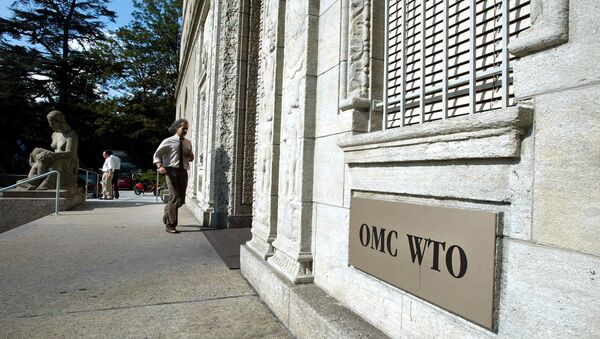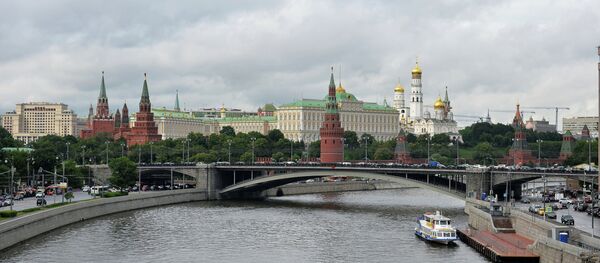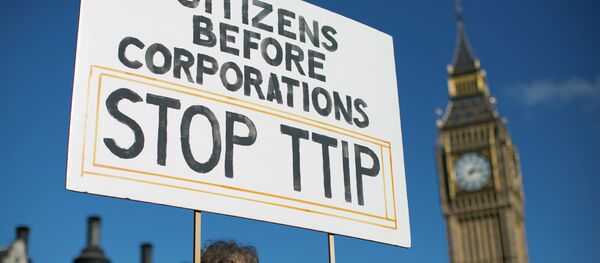GENEVA (Sputnik), Anastasia Levchenko – The Public Forum is an annual event bringing together representatives of governments, business communities, media and civil society from WTO members across the globe to discuss various problems and find common approaches to them.
This year, the relation of the WTO agenda to politics was behind most of the discussions, though never put into words directly.
The title of the forum "Trade Works!" suggests that WTO functions well despite political factors, such as tensions between Russia and the United States over the Ukrainian crisis that led to sanctions, or reluctance to acknowledge the growing clout of BRICS countries that triggers their exclusion from major regional free trade negotiations – Transatlantic Trade and Investment Partnership (TTIP), Trans-Pacific Partnership (TPP) or Trade in Services Agreement (TiSA).
Inability of major WTO members to separate political interests from trade has resulted in the growing inefficiency of the multilateral format of the organization.
WTO’s current trade-negotiation round – the Doha Development Agenda (DDA) — has stalled, which, in turn, has prompted the United States, the European Union and a number of the Pacific and Latin American states to launch secret talks on the liberalization of trade and services (TTIP, TPP or TiSA) outside WTO confines.
Others insisted that only a multilateral format of the WTO can be considered fair and democratic and should prevail despite the desire of a number of states led by the United States to form a closed club of countries that would impose trade regulations favorable for them on the rest of the world.
Inclusivity of global trade relations and the necessity to help the least developed African countries integrate into them was also a prevailing topic of the WTO forum's discussions.
Legal regulation of digital trade, which has become almost more important than energy trade relations, was also on the agenda.
The WTO Public Forum has not come up with any conclusions or practical decisions, as its format does not stipulate it, but it gave an opportunity to a broad range of participants, including the media, to address the most sensitive issues in today's global trade and exchange views on them.



